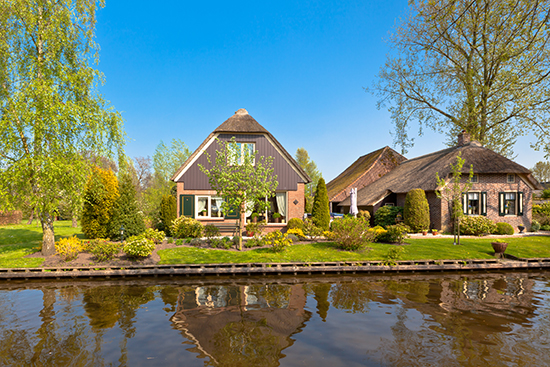The latest survey by the Land Registry (Kadaster) shows that the large cities in the Netherlands are experiencing an exodus. In recent months, 38% of Amsterdammers who moved bought a home outside the city. The high house prices are the main reason for leaving the city, as shown by an analysis of housing market figures between March 2020 and February 2021.
“Prices are very high. Some people cannot afford them anymore; there is a limit. As a result, more and more rich people come to Amsterdam and people with less money to spend move to Almere, for example. This trend has been going on for years,” says Land Registry housing market expert Paul de Vries to Het Parool newspaper.
Additionally, only half of the home buyers from the four major Dutch cities (Amsterdam, Rotterdam, The Hague, and Utrecht) moved within their own municipality last year. In Amsterdam the number was 52 percent, compared to 70 percent in 2015. The average distance of a move increased from an average of 37 kilometers in 2015, to 44 in 2020. That’s the largest increase in six years.
The housing market has flourished in the past twelve months as never before: a record number of people moved and house prices soared to a record high. A total of 243,946 homes changed owners, according to Het Parool. That’s 12 percent more than last year and more than the record in 2017. This is mainly due to the low mortgage interest rate and the new tax measures aimed to support first-time buyers.
NVM, the national association of real estate agents, attributes the dip in Amsterdam to the already high price level and the corona crisis. Last year, the capital attracted fewer foreigners, who are an attractive target group for investors in rental properties.
Working from home is possible anywhere
According to the Land Registry, the rise in the number of people leaving the city might also be explained by the “work from home” policy. This measure made the travel distance to work less important when choosing a place to live. In an interview for Het Parool, Sandra Smits (37) says corona has accelerated her family’s move out of the city. Sandra has been working from home for almost a year and her employer has said that working from home will also be possible in the future. “When I heard that, my husband and made concrete plans for buying a house, with a garden, further outside of Amsterdam,” says Smits. At first she looked in the region, but prices have also risen sharply there. “We decided to increase our search radius to 120 kilometers from Amsterdam.”
Outdoor space versus city life
De Volkskrant newspaper reports the need for more outdoor space as another reason for the people to live the city. It suggests that outside the capital, your house will be better, more spacious, and cheaper too. More for less. Places with a garden and a larger number of rooms are the most popular. Less importance is attached to living within the Amsterdam ring road.
Jan Willem Duyvendak, professor of sociology at the University of Amsterdam, has researched the “feeling of home” and says this has changed with corona. “Home has been given a different function, it’s the place where we live ánd work. Many people realize that it’s not ideal to be at home all the time,” states the professor to De Volkskrant. Especially when your house is small, as most Amsterdam homes are, you will feel the need for more space, leading to a home search outside the city.
Cinemas and cafes are closed and cities have become hotbeds for viruses. It makes sense that city dwellers consider moving to a place with more space and greenery. “The city’s appeal is temporarily less and the reasons for leaving Amsterdam are felt more strongly, such as the crowds, unaffordability and lack of space. But I do wonder if these people will not regret it. At a certain point the city is no longer a hotspot and cafes will open again. Will we continue to work from home after this pandemic?” asks Duyvendak. Let’s wait and see.
Written by Raphael Perachi Vieira
